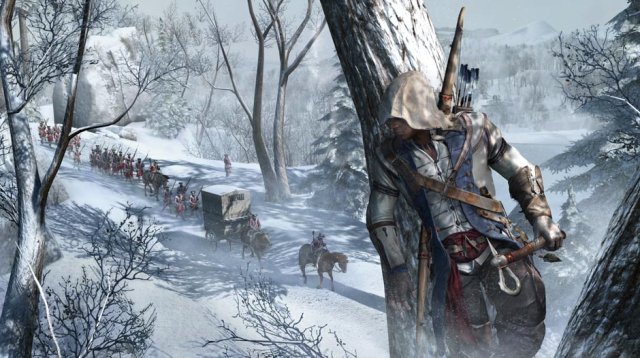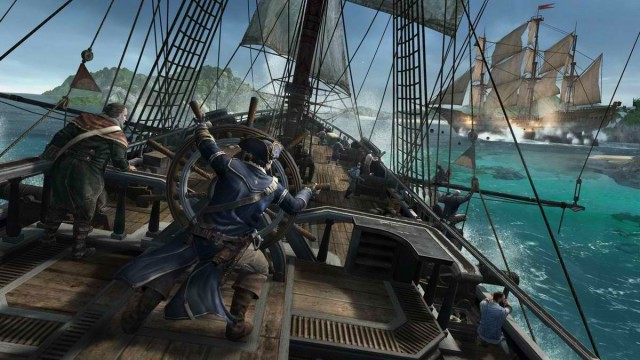
Sequels can be a difficult topic to discuss among gamers. On the one hand, you have people who are unabashed in their love of particular franchises as they pick up each annual entry, while on the other you have folk who tire of a perceived greater reliance on iteration and want more risks and creativity. The latter might consider the former naive and the former might consider the latter overly cynical. These debates can be heated, and frustrating to the less conflicting oriented, and people seem to lose track of where and how these two sides can, and do meet, to produce good sequels; and believe it or not, it really comes down to business decisions.
Consider the Assassin’s Creed franchise; it started as an innovative and much loved series with a promising start, waited two years to release a much improved sequel, and then each year since has seen a new game that most would agree fall well short of the previous high water marks. Nintendo consoles never got to experience the series until 2012’s Assassin’s Creed III, a game that many fans of the series would seemingly come to loathe for lackluster characters and gameplay mechanics and ideas that were spread too thin. Many would agree that Assassin’s Creed IV: Black Flag pushed the franchise back toward the right direction, but few seem to argue it to be the best.
I bring up Assassin’s Creed because it is a perfect representation of the aforementioned debate. Year after year, Ubisoft releases a new game, millions of gamers eat it up, and then a much smaller, albeit very vocal, group decries the series’ downward spiral and the publisher’s greedy efforts to grab as much cash as possible. Regardless of where you might fall, I don’t think you can really argue against how astounding an accomplishment this annualization is. Though each entry isn’t equal to the series’ best, none are really bad and all are ambitious in scope and design. Ubisoft does this by employing a massive team of developers that is unprecedented in size and spans the entire globe. Yes, Ubisoft saw the potential for earnings in the Assassin’s Creed games, but it made the admirable decision not to have one, normal size developer phone something in every year; instead, it invested in a creating a large enough team to do in one year what most would require years to accomplish. And to those who cry foul for a lack of innovation, I once again point to Assassin’s Creed III, a game that was weakened by its ambition, which resulted in gameplay that needed more focus and had technical issues indicative of a game being stretched too far.
 Whether you love it or hate it, you have to respect the effort.
Whether you love it or hate it, you have to respect the effort.Another series deserving of more credit is another that millions love but manages to earn even more detractors than Assassin’s Creed. I am, of course, talking about Call of Duty. Once again, we have a series that gets a new release every year and, despite the amount of scorn it gets with each entry, they manage to be good. Not always great, and with wilder swings in overall quality than Assassin’s Creed, but still good. Rather than build a massive team like the one at Ubisoft, Activision instead employs multiple teams who rotate releases, thus giving each game a two year development cycle. Infinity Ward developed Call of Duty and Call of Duty 2, Treyarch then developed Call of Duty 3, and the two studios have been trading off ever since. Once again, what we have here is an indication that a big publisher is showing at least a certain measure of concern in quality, and Activision is showing an even greater interest in overall quality because it has now switched to a three studio rotation, with Sledgehammer, a new studio that has contributed to past entries, being the main developer for 2014’s COD and the other studios being permitted three year development cycles.
Where does Nintendo fit in this debate? Well, I think Nintendo has found a way to effectively exclude itself. No one can deny that Nintendo is definitely sequel happy, but the truth is that it shows much more restraint that one might first think. While Nintendo continuously calls on its time tested franchises to make itself massive amounts of money, they are used much less frequently than what business sense might normally suggest. While annual Mario Kart or Smash Bros. releases could undoubtedly provide a major boost to Nintendo’s profits, the company is ultimately obsessive about protecting the value of its franchises for the long term. As we established, Ubisoft and Activision have shown a willingness to make substantial investments to maintain a respectable level of quality for their annual franchises, but it still isn’t quite enough as, with each passing year, the supporting fan base erodes a little more and the chorus of naysayers grows. Nintendo, on the other hand, tends to wait until it has some sort of solid, new gameplay concept to justify each major entry in its primary franchises. Look at Super Mario 3D World for Wii U; many people lashed out against it after it was unveiled, assuming it to be an uninspired retread of Super Mario 3D Land. However, once the game came out, reviewers and the gaming public alike clearly saw it was its own game that proved quite distinct compared to its 3DS predecessor.
Regardless how one feels about the state of sequels in the industry right now, there is a distinct balance developers and publishers have to maintain between game making as an art form, and game making as a business. A successful franchise is effectively a license to print money, but gamers are still a smart enough bunch to see when an IP and its fanbase are being exploited; so I believe that most publishers are, in fact, trying to make a concerted effort to walk this line. While they are beholden to shareholders to make a profit, publishers also have to make a product deserving of the fans. The end result is an industry that is reliant upon major brands to maintain profitability, but still puts forth a tremendous amount of effort to please the fans. Sure, bad eggs pop out every so often and tastes change faster than many developers can adapt to, but I believe there is a certain amount of credit we should give to the teams that put forth the effort and try to make the endless stream of sequels worthwhile.




 ShareThis
ShareThis






